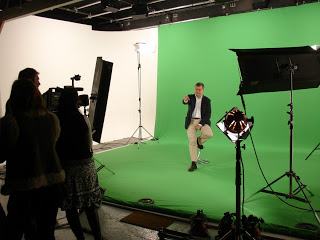-
Localizing the Digital RevolutionA fresh and funny look at the fascinating world of audio and video localization.
Ready for you to share ! -
Localizing the Digital RevolutionInspiring quotes and surprising figures on audio and video localization
-
Localizing the Digital RevolutionRelevant and compelling facts about e-learning, translation, transcreation and more…
-
Localizing the Digital RevolutionAudio and video engineering, lip-sync recording, standard voice-over…
Multilingual and multimedia is the name of the game!

On Camera Live Coverage. How ?
I’m a journalist not an actor, so how can I face a camera and have a fluent meaningful speech that sounds and looks natural ?
Well you haven’t been trained to do it, but it doesn’t matter, this is a matter of practice, a lot of practice. Here are some tips for you:
1) Prepare your subject matter. really brood over the topic you are going to talk about until it becomes part of your knowledge, until you can explain it from different angles and with different words and expressions. If you have to talk to a wide audience through a camera lens you need to do as any soldier will do to combat, get the right ammunition and weapons. That means for you arguments and clear views on what you are talking about.
2) Do not memorize the topic. Preparing a subject does not mean to learn by heart a text and then say it like a talking machine. Dale Carnegie writes that “the man who writes out and memorizes his talks is wasting his time and energy and courting disaster”. You should think of ideas, not words. As Carnegie points out “if your ideas are clear, the words come as naturally and unconsciously as the air we breathe.
3) Read with your mind open. Contrary to conventional wisdom, actors don’t learn line by line, literally recording in their minds the sentences. The process is reading over and over again the key texts of your speech and bullet points. This assimilation process should take place casually and during the best moments of they when there is no pressure.
4) Rehearse. Yes, you need to practice in front of someone who can direct you, or if you are alone in a hotel, do it in front of a mirror. Don’t worry if the speech changes everytime, remember you are not a machine, you will express ideas not a collection of words, that means that you can formulate your ideas in different fashions, as long as they are clear and you are standing in full control.
5) Keep control. It is natural that you feel uneasy and in tension when you know that you are going to do a live presentation on camera. That is good, because it means your adrenaline is flowing in your mind and body, so when the moment comes you will be able to be sharp. Get your mind off you and focus on the subject matter.
6) Keep it cool on-camera. When you are reporting life in front of camera, you will be standing for a while, maybe several minutes before the anchor greets you and asks you questions. You will not be able to see him, but you have to look at the camera without moving too much. While you wait just relax and maybe think about the key messages of what you are going to say. Then add energy and personality to your sentences, but don’t get nervous if a word is misplaced, if you suddenly forgot something.
 At PrimeVoices‘ studios we record voice-overs in multiple languages. We have a casting of native voice talents from all over the world. From simple voice-over to more elaborate dubbing or lip-sync, at PrimeVoices we can also mix the speech track with music or just background sound. With three studio suites, we can perform any post-production from video editing, to subtitling and captioning.
At PrimeVoices‘ studios we record voice-overs in multiple languages. We have a casting of native voice talents from all over the world. From simple voice-over to more elaborate dubbing or lip-sync, at PrimeVoices we can also mix the speech track with music or just background sound. With three studio suites, we can perform any post-production from video editing, to subtitling and captioning.
With PrimeReporters, a branch of PrimeVoices, we organise coverage of world events like elections or summits, supplying ready-to-air reports to international broadcasters.
Categories: Blog
